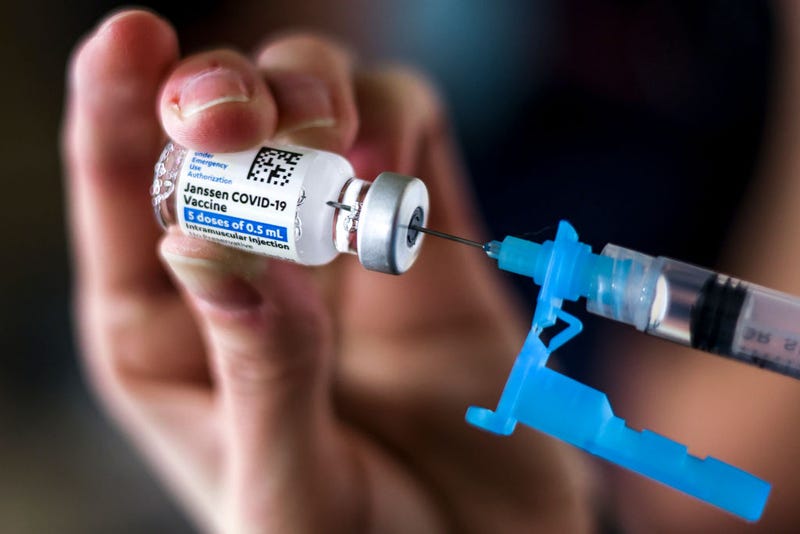
Johnson & Johnson says new data supports the use of its COVID-19 vaccine as a booster for people previously vaccinated with the single-dose shot.
The pharmaceutical company said Wednesday that early-stage clinical trials show a second dose of its COVID-19 vaccine generated a promising immune response, which could lead to booster shots being recommended in the near future.
The company conducted two clinical trials with patients previously vaccinated with its single-shot vaccine. Researchers say the data shows a booster dose of the vaccine generated a rapid spike in antibodies, nine-fold higher than those seen four weeks after a single dose.
"We have established that a single shot of our COVID-19 vaccine generates strong and robust immune responses that are durable and persistent through eight months," Dr. Mathai Mammen, global head of Janssen Research & Development, Johnson & Johnson, said in a statement. "With these new data, we also see that a booster dose of the Johnson & Johnson COVID-19 vaccine further increases antibody responses among study participants who had previously received our vaccine."
Federal health officials have recommended that Americans get a COVID-19 booster shot eight months after full vaccination. The booster shot program is expected to begin September 20 for those who received the Pfizer and Moderna vaccines, pending full approval from the U.S. Food and Drug Administration.
Since the J&J vaccine was granted emergency use authorization in late February, a booster shot program from those who received the vaccine probably wouldn't start until late October or early November, if approved.
The company is working with federal health officials, including the FDA and Centers for Disease Control and Prevention, regarding booster shots.
"We look forward to discussing with public health officials a potential strategy for our Johnson & Johnson COVID-19 vaccine, boosting eight months or longer after the primary single-dose vaccination," Dr. Mammen said.
The company said significant increases in binding antibody responses were observed in trial participants between ages 18 and 55, and in those 65 years and older who received a lower booster dose. The data was submitted but hasn't yet been peer-reviewed or published in a scientific journal.
About 14 million Americans have received the J&J vaccine, according to the CDC. Those who receive the vaccine are considered fully vaccinated two weeks after getting the single-dose shot.


